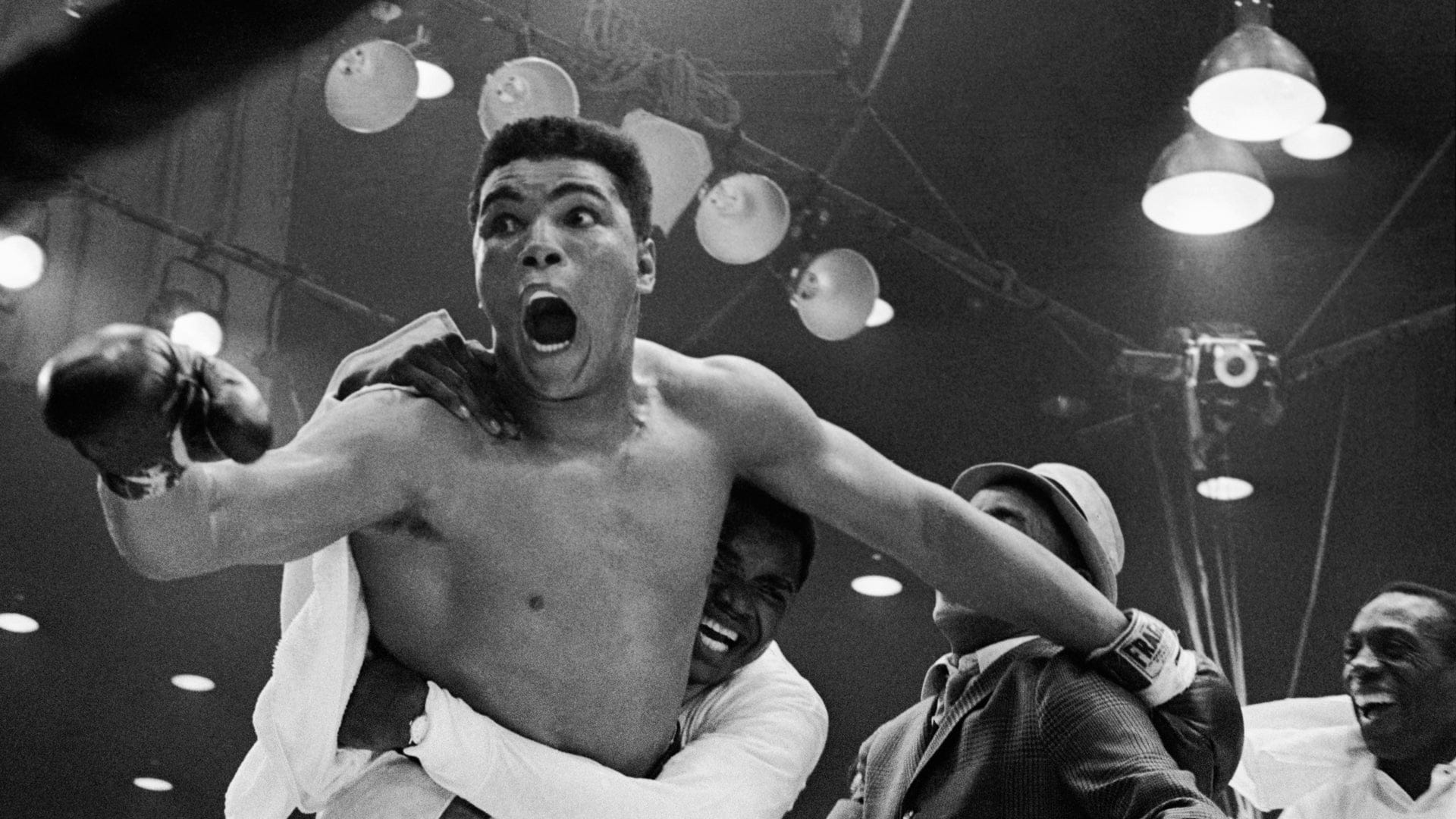Get ready to step into the ring with the legendary Ali-Liston fights! These epic battles weren’t just about two powerful men punching each other, they were a seismic shift that rocked the boxing world. In “Ali’s Rise & Liston’s Shadow,” we’ll take you behind the scenes of these iconic encounters, exploring the fighters’ minds, the cultural currents that fueled their rivalry, and the enduring legacy that still has us on the edge of our seats today.
David vs. Goliath: The Fall of Liston and the Rise of a Champion
Before Muhammad Ali became “The Greatest,” before he was even known as Muhammad Ali, he was a young Cassius Clay, a brash, bold up-and-comer taking on the seemingly invincible heavyweight champ, Sonny Liston. People feared Liston, saw him as unbeatable. But young Clay? He wasn’t afraid. He saw an opportunity to make history.
Ali-Liston I: A Star is Born, A Champion Dethroned
February 25, 1964. Miami Beach. The atmosphere was electric. Everyone expected Liston to steamroll this young, fast-talking Clay. But Clay, with his lightning speed and fancy footwork, danced around Liston. He wasn’t just boxing; he was putting on a show, taunting Liston, predicting a knockout. And as the fight went on, it became clear: Clay wasn’t just talk. He was the real deal.
By the sixth round, Liston, frustrated and likely injured, refused to continue. The crowd erupted. Clay, the underdog, had pulled off what many thought impossible. He was the new Heavyweight Champion of the World.
This wasn’t just a boxing match; it was a seismic cultural event. Clay, a proud Black man who spoke his mind, became a symbol of change, a hero for many in the Civil Rights Movement.
Ali-Liston II: The Phantom Punch and a Legacy Cemented
May 25, 1965. The rematch. The anticipation was off the charts. This time, Liston was out to prove the first fight was a fluke. But just over a minute into the first round, it happened. Ali threw a right that seemed to barely connect, a punch some called a “phantom punch” because it looked like Liston went down too easily.
To this day, people debate whether the punch was real or if Liston took a dive. Did he quit? Was it a fix? The mystery surrounding the fight only added to its legend.
More Than Just Boxing
The Ali-Liston fights weren’t just sporting events; they were cultural moments that transcended boxing. They reflected the racial and social tensions of the 1960s. Liston, often portrayed as the establishment’s champ, represented a world that Clay, soon to be Muhammad Ali, was challenging.
Ali’s victories weren’t just about boxing; they were about changing perceptions, about pride, about the power of belief. He became a global icon, a symbol of resistance, a voice for the voiceless. The impact of those two fights, the questions they raised, the conversations they started, can still be felt today. They remain a testament to the enduring power of sports to reflect and even reshape society.
Outperforming the Competition: Who Won Sonny Liston vs Muhammad Ali?
Now, we’re talking about two legendary showdowns here! Both of their fights went down in boxing history as some of the most memorable ever. But when it comes to who reigned supreme, it was a young and brash Cassius Clay, who later became known as Muhammad Ali, who walked away with the victory in both bouts. This cemented his place as a true icon, not just in boxing, but in the world.
The first fight, back in ’64, was a shocker, to say the least. Here’s Clay, this underdog, going up against Sonny Liston, the heavyweight champ who just seemed unbeatable at the time. But Clay, with his speed and fancy footwork, completely outmaneuvered Liston. By the seventh round, Liston, nursing a shoulder injury, decided to call it quits, leaving Clay the new champ.
Then came the rematch in ’65, and things got even more interesting, if you can believe it. Just one round in, Liston hits the canvas after what’s become known as the “phantom punch.” To this day, people are still debating what really happened – was it a real punch, or did something else go down? Conspiracy theories are still swirling around! Whatever the truth is, Ali won that fight with a first-round knockout, proving he was a force to be reckoned with.
Even though Liston lost, people still remember him as one of the most powerful and intimidating boxers of all time. But for those two nights in the ring, it was Muhammad Ali who shone the brightest.
Trending Titles & Suggested Article Titles: Did Sonny Liston Throw the Fight?
The first bout between these two boxing titans remains a head-scratcher for many. In 1964, a young and brash Cassius Clay (who would later become Muhammad Ali) faced off against the formidable Sonny Liston, the then-heavyweight champion. Most expected Liston to make quick work of the up-and-comer. But in a twist no one saw coming, Liston didn’t answer the bell for the seventh round, surrendering his title to Clay.
This unexpected turn of events immediately ignited a firestorm of speculation. Was Liston actually injured, as he claimed, citing a shoulder problem? Or was there something fishier going on? Rumors of a mafia-orchestrated fix, potentially involving a bribe for Liston to take a dive, swirled around the boxing world. Some even whispered that Liston, facing threats against his life, had no choice but to throw the fight.
Adding fuel to the fire was Liston’s demeanor throughout the fight. He appeared sluggish and out of sorts, a far cry from his usual dominance. This only deepened the mystery surrounding the fight, leaving fans and analysts alike to endlessly debate what truly transpired that night.
Despite countless theories and years of speculation, the definitive answer to why Sonny Liston quit remains elusive. It’s a question that continues to spark debate and intrigue within the boxing community, forever etching the first Liston-Ali fight into the annals of boxing’s most controversial moments.
“Get Up and Fight, Sucker!”: Decoding Ali’s Infamous Taunt
The fight between Muhammad Ali and Sonny Liston was more than just a boxing match; it was a spectacle, a whirlwind of controversy and iconic moments. We all know the fight ended with Ali declared the winner, but the path to that victory was paved with whispers of a fixed fight and fueled by unforgettable exchanges between the two fighters.
One such exchange, etched into boxing history, happened after Liston was knocked down. Instead of moving to a neutral corner, Ali stood over the fallen boxer, unleashing a verbal assault that echoed through the stadium. He shouted, “Get up and fight, sucker!”
Now, some folks might think Ali just wanted to keep the brawl going. But there was a strategy at play. See, Ali was known for his lightning speed, his ability to dance around his opponents. Liston? He was a powerhouse, a knockout artist. By the time Liston fell, Ali probably knew he had him on the ropes. Yelling at Liston wasn’t just trash talk, it was a way to further rattle him, to exploit the pressure of the moment and maybe, just maybe, goad him into a desperate mistake.
This moment, this phrase, has become synonymous with Ali’s showmanship and his knack for psychological warfare. It embodies the raw emotion and unpredictability that made this fight a legend. Did Ali plan it? Was it a spur-of-the-moment outburst? We may never know for sure. But one thing is certain: it added another layer of intrigue to a fight already teeming with it.
Lewiston’s Unlikely Ring: Why Ali-Liston II Landed in Small-Town Maine
So, picture this: 1965, the boxing world is buzzing for the rematch between Muhammad Ali and Sonny Liston. Everyone thinks it’s going down at Boston Garden, a legendary boxing arena. But hold on! Things took a sharp left turn. Massachusetts officials started getting cold feet about supposed ties between Sonny Liston and some shady characters from organized crime, particularly a big-shot mobster named Pat McManus from Boston. Worried about legal headaches, they decided to pull the plug on Boston as the fight location.
Now, Lewiston, Maine, was a small town known more for its mills than its boxing rings. However, they saw a golden opportunity. They threw a cool $100,000 on the table as a hosting fee, hoping to bring in some much-needed cash and attention. Plus, word on the street was that Maine’s Governor, John Reed, a buddy of Ali’s manager, was putting on the pressure to hold the fight in his state.
And that, my friends, is how a small town in Maine became the unlikely host for one of boxing’s most talked-about rematches. However, the drama didn’t stop there. The fight itself ended abruptly with Ali knocking out Liston in the first round with what came to be known as the “phantom punch.” Many folks who saw the fight swear that Ali’s punch didn’t completely connect, sparking rumors of a fixed fight. The referee seemed just as confused as everyone else, and Ali’s antics in the ring only added fuel to the fire.
Lewiston’s moment in the spotlight was a mixed bag. The town got its name splashed across newspapers nationwide and saw a surge in tourism. But the whole ordeal left some locals feeling embarrassed by their town’s link to organized crime. It’s safe to say that Lewiston’s legacy became intertwined with the controversial fight.
“The May 25, 1965, Ali vs. Liston fight for the heavyweight champion of the world was supposed to make Lewiston, Maine, famous. Instead, it became “the fiasco.” – Excerpt from “The Night Lewiston, Maine, Can Never Forget,” Yankee Magazine, May, 1979.
Do you know who was JFK’s successor? Find out the answer here: JFK’s successor Many people believe that Jimmy Carter is the nicest president you can read all about him here: Jimmy Carter is the nicest president Did you know that there is a term for an overly commercialized celebration? find out what it is here: Term for an overly commercialized celebration There were many important events from 1200-1450, find out about them here: Important events from 1200-1450
















